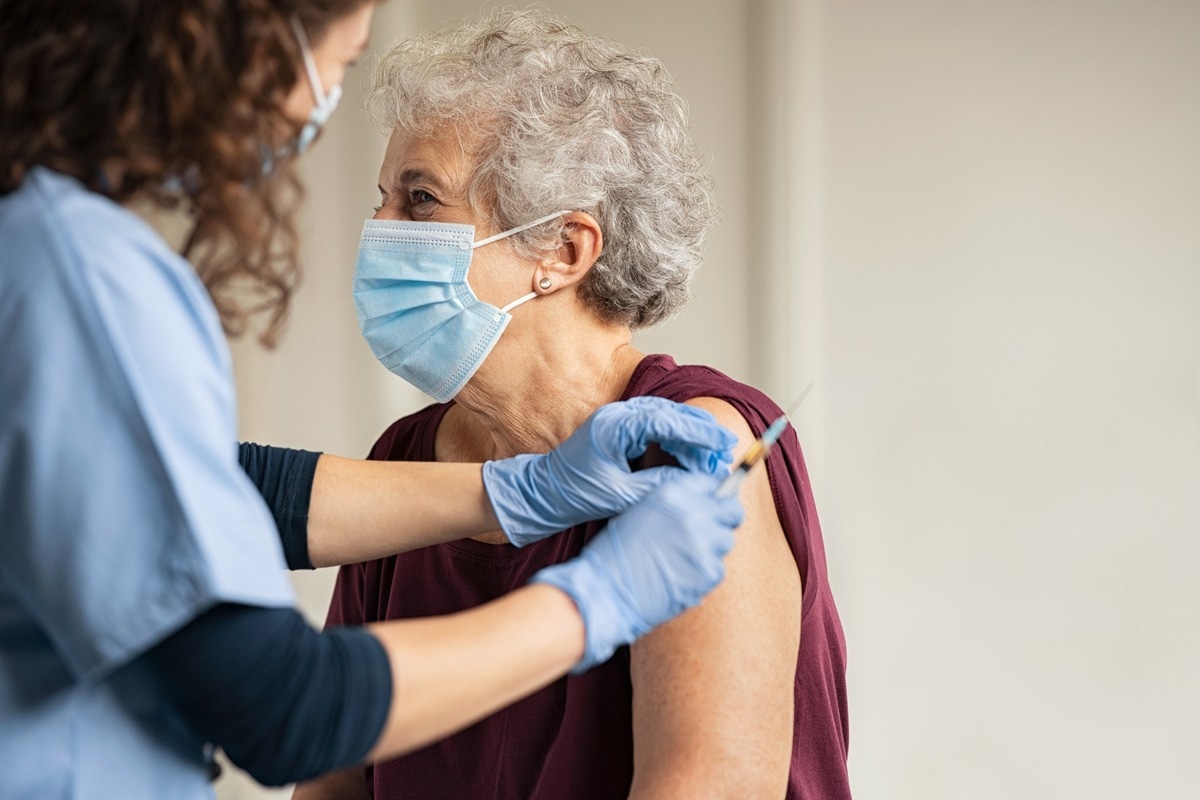The coronavirus disease 2019 (COVID-19) pandemic brought about by severe acute respiratory syndrome coronavirus 2 (SARS-CoV-2) continues to cause adverse health effects to millions of people globally.
A reliable diagnostic tool is required for the identification of remote and recent infections that could help to determine infection status in vaccine clinical trials, enable population-based seroprevalence studies, and diagnose complications post-SARS-CoV-2 infection.
 Study: Antinucleocapsid Antibodies After SARS-CoV-2 Infection in the Blinded Phase of the Randomized, Placebo-Controlled mRNA-1273 COVID-19 Vaccine Efficacy Clinical Trial. Image Credit: Rido/Shutterstock
Study: Antinucleocapsid Antibodies After SARS-CoV-2 Infection in the Blinded Phase of the Randomized, Placebo-Controlled mRNA-1273 COVID-19 Vaccine Efficacy Clinical Trial. Image Credit: Rido/Shutterstock
One such approach is to identify the presence of antibodies against the nucleocapsid protein (anti-N Abs) to confirm SARS-CoV-2 infection. Anti-N Abs are not evoked by COVID-19 vaccines and several studies have reported them to have high specificity and sensitivity. Additionally, anti-N Abs have been reported to be durable for unvaccinated individuals with a half-life of 68 to 283 days. However, whether seroconversion to non-spike proteins is affected by vaccine-induced immunity and immunoassays accurately measure non-spike seroconversion in regions with high vaccine coverage is still unknown.
A new study published in the Annals of Internal Medicine journal assessed both placebo and vaccine recipients in the mRNA-1273 (Moderna) phase 3 clinical trial who were infected with SARS-CoV-2 during the blinded, placebo-controlled trial phase. The serum samples were collected from all the participants and assayed for the presence of anti-N Abs 5 months post-enrollment.
About the study
The study took place between 27th July and 23rd October 2020 and included individuals who were 18 years of age and above. The participants were randomly assigned to receive 100 micrograms of either placebo or mRNA-1273 vaccine on day 1 (baseline) and day 29.
SARS-CoV-2 infection was detected based on symptomatic testing and planned testing at specific study visits. Blood samples were collected from all participants on days 1, 29, and 57 as well as the participant decision visit (PDV), where participants were informed about the trial assignment. Moreover, nasopharyngeal samples or saliva samples were collected on day 1, day 29, and the PDV for SARS-CoV-2 testing. The occurrence of PDV was approximately 149 days post-enrollment.
Information on the severity of symptoms, oxygen saturation, and body temperature was collected for 14 days via telemedicine. The detection of anti-N Abs was carried out with the help of the Elecsys Anti-SARS-CoV-2 immunoassay.
Furthermore, 4 mutually exclusive groups of infection were defined based on the timing and method of SARS-CoV-2 detection. The first group included COVID cases that were detected at least 14 days post-dose 2 and till PDV. The second group comprised participants who were anti-N seropositive or had a positive nasopharyngeal swab at baseline. The third group comprised participants who were anti-N seropositive at day 29 but without any previous evidence of infection. The fourth group comprised participants who were seronegative on day 29 but had a positive nasopharyngeal swab on day 29 but without any previous evidence of infection.
Study findings
The results reported SARS-CoV-2 infection within 14 days or more following administration of vaccine or placebo in 812 participants who were SARS-CoV-2 negative participants at baseline. The infections were detected by either anti-N seropositivity or nasopharyngeal swab RT-PCR positivity. The time between the second dose and illness was reported to be 77 for the vaccine group and 73 for the placebo group.
The anti-N seropositivity at the PDV for COVID-19 positive participants at an illness visit was found to be 93.4% in placebo recipients and 40.4% in vaccine recipients. Anti-N seropositivity at the PDV was not found to be associated with days between PDV and illness or age, sex, race, body mass index, and risk of severe COVID-19 in both placebo and vaccine recipients. However, it was positively associated with days between illness and second vaccination in the case of vaccine recipients.
Moreover, the anti-N seropositivity was found to be 13.67 times higher for the placebo group as compared to the vaccine group for any SARS-CoV-2 viral level. The anti-N seropositivity rates were observed to be 96.1% for the vaccine group and 95.1% for the placebo group which was maintained through the PDV. The anti-N seropositivity at day 29 for the placebo group was observed to be 74.1% and 73.3% for the vaccine group in the case of participants who were anti-N–seronegative and PCR positive at baseline.
Overall, the anti-N seropositivity rates at the PDV and day 29 were found to be lower for those who were PCR-positive at baseline as compared to those who were anti-N–seropositive. A similar observation was made for the anti-N seropositivity rates at day 57 and the PDV for the participants who were anti-N–seronegative and PCR positive at day 29 as compared to those who were anti-N–seropositive.
Therefore, the study determined that seroconversion occurred more in place recipients as compared to vaccine recipients. Further research is required to determine population-level SARS-CoV-2 infections. Moreover, the vaccination status must be considered during the interpretation of individual and population-level seropositivity and seroprevalence data.
Limitations
The study has certain limitations. First, the study involves only one vaccine and does not take into account whether other COVID-19 vaccines also interfere with anti-N seropositivity after infection. Second, only one immunoassay, the Elecsys assay was considered in the study. Third, the sample size was small. Forth, whether the anti-N seroconversion rates could be higher or lower depending on vaccination status or severe disease was not clear. Fifth, the impact of breakthrough infections with Delta or Omicron variants on seroconversion rates could not be determined. Finally, the study failed to address an objective of the coronavirus efficacy trial.